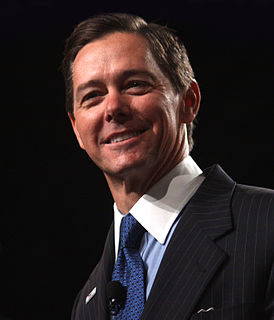A Quote by Stephen Colbert
Destroying a religious symbol and building a religious center are really the same thing if you don't think about it.
Related Quotes
No, I'm not religious, I'm sorry to say. But I was once and shall be again. There is no time now to be religious." "No time. Does it need time to be religious?" "Oh, yes. To be religious you must have time and, even more, independence of time. You can't be religious in earnest and at the same time live in actual things and still take them seriously, time and money and the Odéon Bar and all that.
An interesting thing about the religious people who run Iran is that one of their problems with Ahmadinejad, who they thought would be one of their guys because he's so religious, is that he actually has some really nutty ideas about religion. He's too religious. He's too literal. I mean, there are plenty of people in Iran who like Ahmadinejad's religious beliefs, just as there are plenty of Christian fundamentalists in America who like George W. Bush's beliefs. But there are also plenty of people who are very uncomfortable with his overt religiosity.
When a child who has been conceived in love is born to a man and a woman, the joy of that birth sings throughout the universe. The joy of writing or painting is much the same, and the insemination comes not from the artist himself but from his relationship with those he loves, with the whole world. All real art is, in its true sense, religious; it is a religious impulse; there is not such thing as a non-religious subject.
The zealous disdain for religion in American jurisprudence amounts to intolerance. Keith Fournier of the American Center for Law and Justice concludes that 'the ones not being tolerated are religious people who dare make any kind of religious reference or take any kind of religious posture outside the private arena.
Everyone talks about religious liberty, but no one believes it. So let us be blunt about it: we must use the doctrine of religious liberty to gain independence for Christian schools until we train up a generation of people who know that there is no religious neutrality, no neutral law, no neutral education, and no neutral civil government. Then they will get busy in constructing a Bible-based social, political, and religious order which finally denies the religious liberty of the enemies of God.
The great writers to whom the world owes what religious liberty it possesses, have mostly asserted freedom of conscience as an indefeasible right, and denied absolutely that a human being is accountable to others for his religious belief. Yet so natural to mankind is intolerance in whatever they really care about, that religious freedom has hardly anywhere been practically realised, except where religious indifference, which dislikes to have its peace disturbed by theological quarrels, has added its weight to the scale.
That's the thing about a folk tale: It is always addressing incredibly key issues about how you should live and what the right thing to do is, which is really what I'm the most interested in - like the questions that religion takes on. And I think that, for those of us that aren't religious, we need, or I need, art that stimulates the same kind of thinking about what it is to be a mensch, or a good man, things like that.
One odd thing about the current debate between religious people and atheists is that the participants don't seem to care that they entirely fail to communicate with the other side. They therefore have no account of why the religious or the atheists believe what they do, except that they are stupid or deluded. I think philosophers should try and make sense of their disputes with their opponents as far as possible without treating them as idiots. This applies to the religious participants in the debate as much as to the atheists.

































